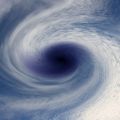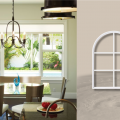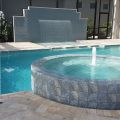6/21/2021
What to Do After a Hurricane in Florida

9/27/2021
Florida is no stranger to hurricanes and the damages they can cause. If you are new to Florida, learn how to make the necessary preparations before a storm to protect your family and property. You must also be aware of the steps you need to take during a hurricane event.
After the initial storm has passed, it may be confusing for some individuals to decide where to start. ServiceMaster by Wright discusses hurricane formation, categories and what to do after a hurricane strikes.
After the initial storm has passed, it may be confusing for some individuals to decide where to start. ServiceMaster by Wright discusses hurricane formation, categories and what to do after a hurricane strikes.
What is a hurricane?
- A hurricane is a type of tropical cyclone producing strong winds and heavy rain.
- It typically forms in the southern Atlantic Ocean, Gulf of Mexico, the Caribbean Sea and the eastern Pacific Ocean.
- Hurricanes can cause catastrophic damages from heavy rainfall, flooding, storm surges, flying debris, and even trigger landslides or mudslides.
- The Atlantic hurricane season lasts from June to November, with the peak season from mid-August to late October.
- On average, eight to 10 hurricanes form in the Atlantic Basin every year.
- The eye of the storm or hurricane is the area of sinking air located at its center, circular in shape with a diameter ranging from 2 to 230 miles. It is the calmest part of a hurricane and is cloud-free.
How do hurricanes form?
- Storm clouds are formed when warm ocean water evaporates and condenses into water droplets. Combined with wind blowing across the Atlantic ocean, a cluster of storm clouds form a circular patter around a center, resulting into a tropical cyclone.
Stages of Hurricane Development
Tropical disturbance
- The first stage of hurricane development characterized by a mass of storm clouds with a slight wind circulation.
- A tropical disturbance has little potential for damage. It becomes a tropical depression when its maximum surface winds exceed 23 miles per hour.
Tropical depression
- The second stage of hurricane development, with surface winds reaching 23 to 29 miles per hour.
Tropical storm
- This is the third stage of hurricane development, when maximum sustained surface winds range from 39 to 73 miles per hour.
- The storm starts forming a circular shape and is given a name.
- Tropical storms quickly develop into hurricanes, so prepare your emergency plan once it is forecasted in your area.
Hurricane
- This is the final stage of hurricane development, with maximum sustained surface winds at or exceeding 74 miles per hour.
Hurricane Categories
- Category 1 - maximum sustained winds ranging from 74 to 95 miles per hour. Can produce some damage to a property.
- Category 2 - maximum sustained winds ranging from 96 to 110 miles per hour. Brings a greater risk of injury to people and structures.
- Category 3 - maximum sustained winds between 111 and 129 miles per hour. Can cause devastating damage to properties.
- Category 4 - maximum sustained winds ranging from 130 to 156 miles per hour. Can cause catastrophic damages.
- Category 5 - the highest category available, with winds of 157 miles per hour or greater.
What to Do After a Hurricane
After a hurricane strikes your area, here are the things you should do, according to Ready.gov:
- Continue listening to an NOAA Weather Radio or the local news for the latest updates.
- Stay alert for extended rainfall and subsequent flooding even after the hurricane or tropical storm has ended.
- If you have become separated from your family, use your family communications plan or contact the American Red Cross at 1-800-RED-CROSS/1-800-733-2767.
- The American Red Cross also maintains a database to help you find your family. Contact the local American Red Cross chapter where you are staying for information. Do not contact the chapter in the disaster area.
- If you evacuated, return home only when officials say it is safe.
- If you cannot return home and have immediate housing needs. Text SHELTER + your ZIP code to 43362 (4FEMA) to find the nearest shelter in your area (example: shelter 12345).
- For those who have longer-term housing needs, FEMA offers several types of assistance, including services and grants to help people repair their homes and find replacement housing.
- Drive only if necessary and avoid flooded roads and washed-out bridges. Stay off the streets. If you must go out watch for fallen objects, downed electrical wires, weakened walls, bridges, roads, and sidewalks.
- Keep away from loose or dangling power lines and report them immediately to the power company.
- Walk carefully around the outside of your home and check for loose power lines, gas leaks and structural damage before entering.
- Stay out of any building if you smell gas, floodwaters remain around the building or your home was damaged by fire and the authorities have not declared it safe.
- Inspect your home for damage. Take pictures of damage, both of the building and its contents, for insurance purposes. If you have any doubts about safety, have your residence inspected by a qualified building inspector or structural engineer before entering.
- Use battery-powered flashlights in the dark. Do NOT use candles. Note: The flashlight should be turned on outside before entering – the battery may produce a spark that could ignite leaking gas, if present.
- Watch your pets closely and keep them under your direct control. Watch out for wild animals, especially poisonous snakes. Use a stick to poke through debris.
- Avoid drinking or preparing food with tap water until you are sure it’s not contaminated.
- Check refrigerated food for spoilage. If in doubt, throw it out.
- Wear protective clothing and be cautious when cleaning up to avoid injury.
- Use the telephone only for emergency calls.
- NEVER use a generator inside homes, garages, crawlspaces, sheds, or similar areas, even when using fans or opening doors and windows for ventilation. Deadly levels of carbon monoxide can quickly build up in these areas and can linger for hours, even after the generator has shut off
Make an Appointment for Storm Damage Restoration
Do you need immediate help for storm damage restoration? ServiceMaster by Wright is available 24 hours a day, 7 days a week at 239-431-9947. You may also connect with us online to schedule an appointment.
- IICRC accreditation (all techs are all certified through IICRC)
- Preferred by insurance companies in Florida
- Time-tested environmentally conscious processes and procedures
- Equipment operation, safety, and maintenance
- Specific product usage and safety
- Hazardous materials handling
- Minimizes any negative environmental and health impacts
Don't know what to do next? We do. Contact us today!
Other articles and publications:
Learn some electrical safety tips after a flooding event. For Sarasota flood & water damage restoration & cleanup, call (239) 431-9947 ServiceMaster by Wright.
If a severe storm or hurricane strikes your property in Southwest Florida this hurricane season and leaves it damaged, rely on ServiceMaster by Wright to conduct repairs and restoration.
7/22/2021
Molds are a menace, especially for flood-prone Florida areas. Let ServiceMaster by Wright help you cope with and prevent mold infestation through this informative article.
9/21/2020
Emergency tarping and board-up services protect your commercial property after a disaster. Learn more.
7/22/2021
Cooking is often the leading cause of all residential building fires and injuries. In observance of fire safety, ServiceMaster by Wright will discuss the steps to remove grease after protein fires.
10/15/2020
You can ensure a healthier home this year through these tips for your spring cleaning in Florida, compiled by ServiceMaster by Wright.
4/22/2021
Articles and publications of other companies:
Protect your pool and screen enclosure for possible hurricane damages this hurricane season. Call Aluminum Master LLC at (239) 449-9934 for your screen repair needs.
8/17/2022
Smart investment for this coming hurricane season - invest in impact-resistant windows and doors. Learn more from Guardian Hurricane Protection, Florida’s Trusted Leader in Hurricane Experts.
4/19/2021
Protect your investment with CGI Sparta impact-resistant windows & doors. Learn more from Guardian Hurricane, Florida’s Leading Hurricane Solution Experts.
5/6/2021
Protect your family, invest in CGI Sparta impact-resistant windows & doors. Contact Guardian Hurricane protection for impact-resistant windows and doors.
6/7/2021
Recovering from a disaster can be difficult and stressful. We know that water damage disasters only get worse when moisture sits for an extended period of time.
6/10/2020
If in doubt with regards to anything listed above, please call Contemporary Pools. Contact us today with any questions you may have, we look forward to your call. Call 239-237-3338.
2/11/2020
Business details
- +1 (866) 676-7761
- 6451 Arc Way, Fort Myers Fl 33966
- www.servicemasterrestorations.com/
We are 24/7 available for water and fire damage restoration, mold removal, interior and exterior painting, carpet and clean up services in Collier, Lee, Manatee and Sarasota counties.









